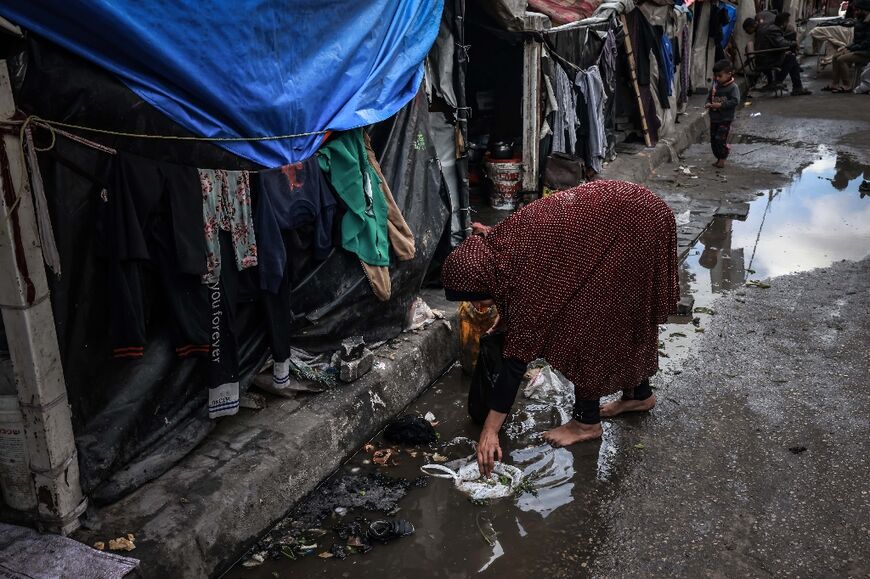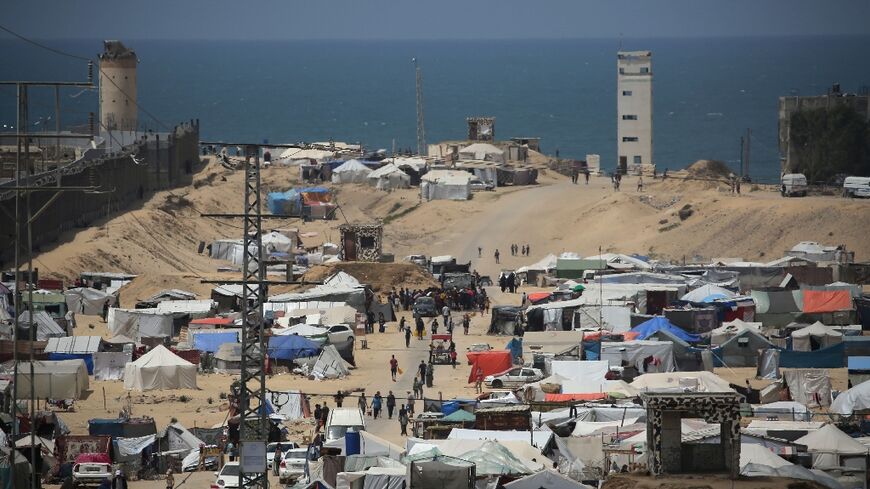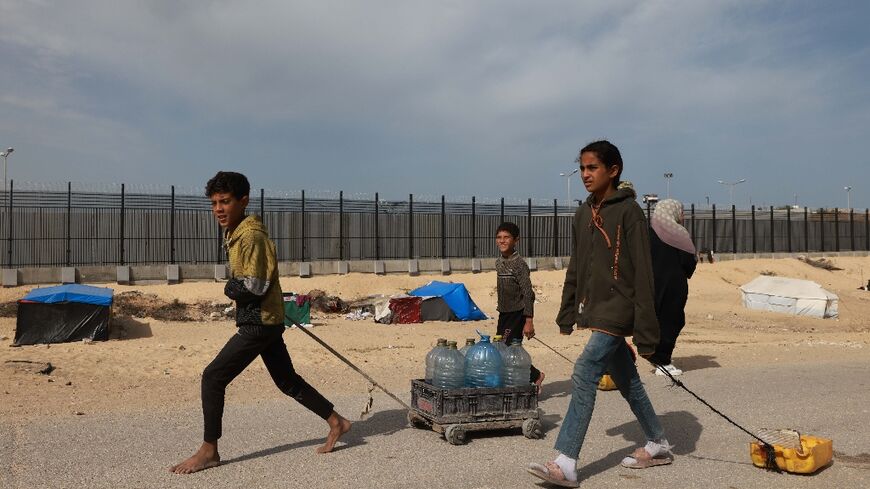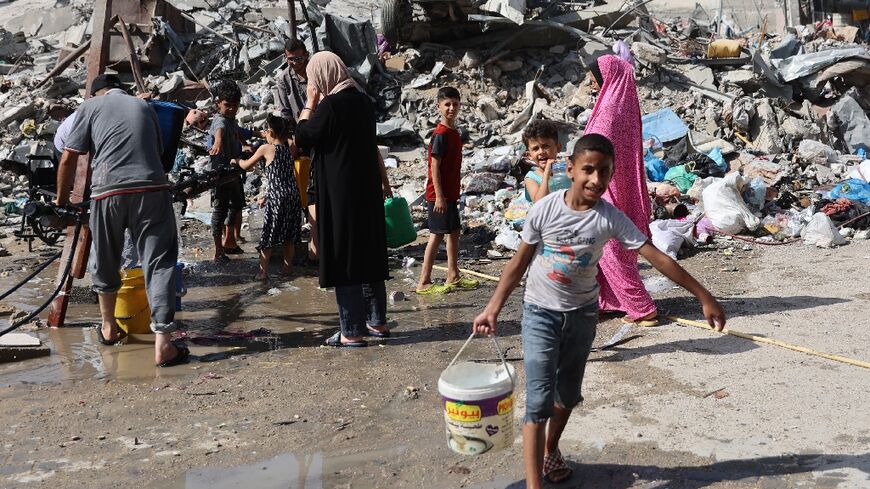Sewage contamination, rubbish threaten health of war displaced Gazans
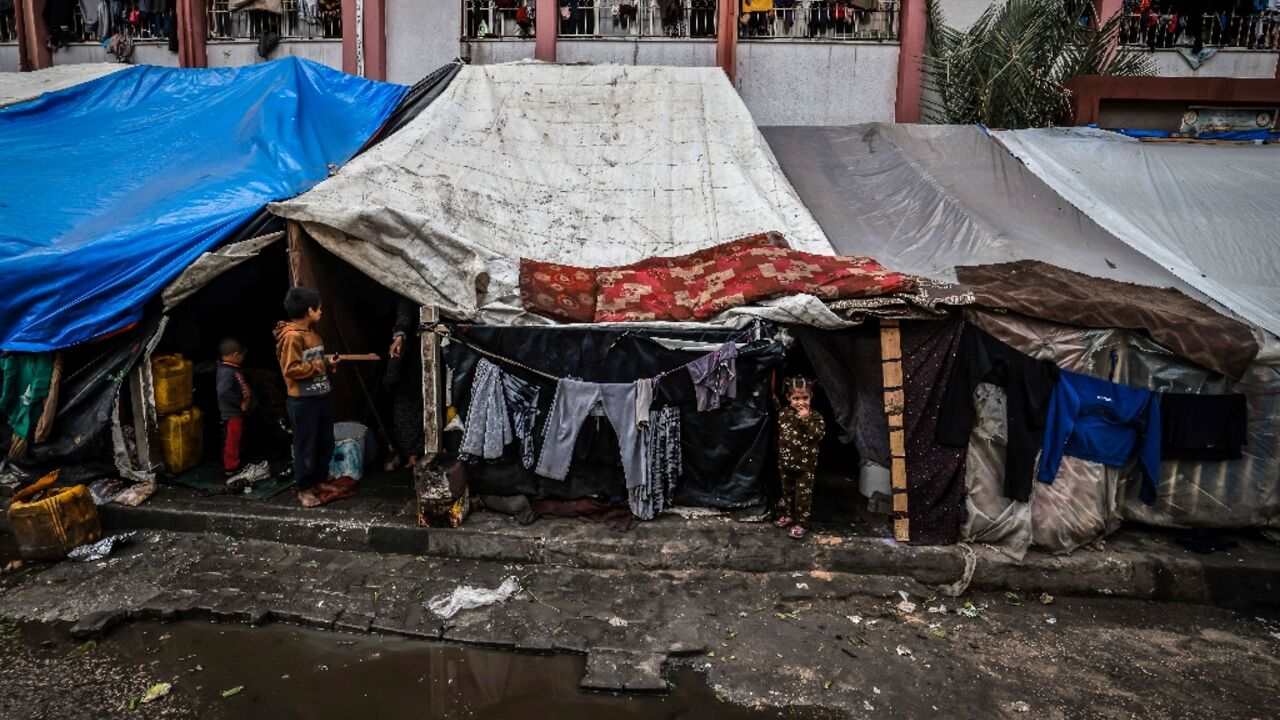
Putrid rubbish piles and sewage-contaminated puddles are increasingly encroaching on the makeshift encampments of displaced Palestinians in southern Gaza, compounding the health risks facing people who have fled Israel's invasion.
"We suffer from foul smells and illnesses among children, who are always suffering from colds," said Sayed Rafik Abu Shanab, who lives in the southern city of Rafah, where the majority of Gazans have sought refuge from the war.
"The sewers here are infested with mosquitoes, which bite people and transfer infections to others."
While the United Nations warns of imminent famine, after more than five months of war between Israel and Hamas militants, humanitarian officials say fast-deteriorating sanitation conditions are making Gazans even more vulnerable.
"Sanitation is one of the key drivers for the nutritional crisis, the health crisis, and I would even say food insecurity as well," Jamie McGoldrick, UN humanitarian coordinator for the Palestinian territories, told a press briefing on Monday.
"People are hungry but they're even more hungry because... their immune systems are being affected by their living conditions. People are living in very squalid, overcrowded conditions."
The war in Gaza was triggered by Hamas's unprecedented October 7 attack on southern Israel, which resulted in about 1,160 deaths in Israel, mostly civilians, according to an AFP tally based on official Israeli figures.
Israel's retaliatory military campaign in Gaza, aimed at destroying Hamas, has killed at least 31,726 people, mostly women and children, according to the health ministry in the Hamas-run territory.
Half of Gazans are experiencing "catastrophic hunger and starvation", and famine is projected to hit the north of the territory by May unless there is urgent intervention, a UN-backed food security assessment warned on Monday.
In Rafah, where the UN says the population has ballooned from around 300,000 to 1.5 million since October as civilians fled the fighting, survivors eke out a grim existence as they wait for a possible truce, dodging ever-growing mounds of rubbish during their daily hunt for food.
"There is no garbage collection," McGoldrick said.
"At the side of the camps, at the side of the roads, there are piles of used papers, plastic, tins, remnants of food, etc."
- 'Explosively dangerous' -
The dire sanitation situation in Rafah and elsewhere in the Gaza Strip has already resulted in a spike in Hepatitis A, a liver inflammation caused by a virus that spreads via faeces. It is not usually fatal.
World Health Organization chief Tedros Adhanom Ghebreyesus warned in January there had been 24 confirmed cases as well as "several thousand people with jaundice, presumably also due to Hepatitis A."
Other diseases could thrive as the situation deteriorates, he said.
"The inhumane living conditions -- barely any clean water, clean toilets and possibility to keep the surroundings clean -- will enable Hepatitis A to spread further and highlight how explosively dangerous the environment is for the spread of disease," he said on X.
Hassan Mustafa, who was displaced from northern Gaza to Rafah, told AFP the growing health risks were creating fear in the tents where he is living.
"We endure this suffering every day, every moment, and we hope to return to our previous lives as soon as possible," he said.
But McGoldrick said that, without a pause in the fighting, there was little humanitarian agencies could do to make things better.
"Because the power plants are not working and because... the water and sanitation systems are broken or in need of repair, we don't have the ability to turn that into something that is better than the current situation," he said.


